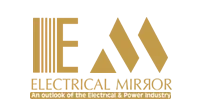Table of Contents
As energy demand grows and sustainability becomes a priority, smart metering and digital energy management are transforming the electrical sector. Smart meters provide real-time data on electricity consumption, while digital energy management systems optimize energy usage, reduce wastage, and support renewable integration. This blog explores the benefits, applications, challenges, and future prospects of smart metering and digital energy management in India.
1. What is Smart Metering?
A smart meter is an advanced electricity meter that measures consumption in real-time and communicates the data to both consumers and utilities. Unlike conventional meters, smart meters enable remote monitoring, accurate billing, and efficient energy management.
Key Features of Smart Meters:
- Real-time electricity consumption monitoring
- Two-way communication with utilities
- Remote billing and energy data access
- Alerts for abnormal consumption or faults
- Integration with home automation and renewable systems
For more updates on smart energy solutions and electrical innovations, visit Renewable Time and AndInnovatech.
2. Importance of Smart Metering
a) Accurate Billing
Smart meters eliminate manual meter reading errors, providing accurate and transparent billing for consumers.
b) Energy Conservation
Real-time data allows consumers to track usage patterns, identify wastage, and make informed energy-saving decisions.
c) Grid Efficiency
Utilities can monitor demand, detect faults, and manage load distribution more effectively, reducing energy losses.
d) Renewable Integration
Smart meters facilitate the integration of solar, wind, and hybrid energy systems, enabling efficient energy management.
e) Reduced Operational Costs
Remote monitoring reduces the need for manual meter reading, lowering operational costs for utilities.
3. Digital Energy Management Systems
Digital energy management systems (EMS) combine smart meters, sensors, and software to optimize energy usage in residential, commercial, and industrial setups.
Key Functions of EMS:
- Real-Time Monitoring: Tracks energy consumption and demand patterns.
- Load Management: Controls high-demand equipment to prevent overloading.
- Predictive Analytics: Forecasts energy requirements based on historical data.
- Integration with IoT: Connects devices and systems for automated energy optimization.
- Reporting and Alerts: Provides insights, usage reports, and notifications for anomalies.
Learn more about EMS and advanced energy solutions at Renewable Time and AndInnovatech.
4. Applications of Smart Metering and EMS
a) Residential Use
Homeowners can monitor real-time electricity usage, control appliances remotely, and optimize energy consumption.
b) Commercial Buildings
Office complexes, malls, and hospitals use EMS to reduce energy bills, monitor HVAC systems, and manage lighting efficiently.
c) Industrial Facilities
Factories and manufacturing units deploy smart meters and EMS to monitor machinery, reduce energy waste, and enhance productivity.
d) Renewable Energy Integration
Solar and wind systems can be integrated with EMS to balance energy generation, storage, and consumption.
e) Smart Cities
Municipal authorities use smart metering for street lighting, public facilities, and community energy management, enhancing efficiency and sustainability.
5. Benefits of Smart Metering and EMS
- Improved Energy Efficiency: Reduces wastage and lowers electricity bills.
- Enhanced Reliability: Detects faults and optimizes load distribution.
- Environmental Sustainability: Supports renewable energy integration and reduces carbon footprint.
- Consumer Awareness: Provides insights into consumption patterns, promoting energy-conscious behavior.
- Cost Savings: Lowers operational costs for utilities and reduces maintenance expenses.
For detailed insights on energy management technologies, visit Renewable Time and AndInnovatech.
6. Challenges in Implementation
Despite the benefits, implementing smart metering and EMS comes with challenges:
- High Initial Costs: Investment in meters, sensors, and software can be significant.
- Data Security: Protecting sensitive consumption data from cyber threats is essential.
- Technical Expertise: Requires skilled personnel for installation, operation, and maintenance.
- Interoperability Issues: Integration with existing electrical systems may face compatibility challenges.
- Consumer Awareness: Users need education on leveraging smart meters and EMS effectively.
Addressing these challenges is crucial for widespread adoption.
7. Government Initiatives Supporting Smart Metering in India
India has undertaken several initiatives to promote smart metering and digital energy management:
- Smart Meter National Programme (SMNP): Deployment of smart meters across urban and rural areas.
- Smart Grid Mission: Modernizing electrical grids with real-time monitoring, automation, and demand management.
- Renewable Energy Policies: Encouraging integration of solar and wind energy with EMS for optimized energy use.
- Energy Efficiency Programs: Incentives for industries and commercial facilities adopting smart meters and EMS.
These initiatives accelerate the adoption of smart technologies in the electrical sector.
8. Future of Smart Metering and Digital Energy Management
The future of smart metering and EMS is promising, driven by technological innovations and digital transformation:
- AI and Machine Learning Integration: Predictive energy management and optimized load balancing.
- IoT-Enabled Smart Homes: Real-time control and monitoring of household electrical systems.
- Blockchain for Energy Transactions: Secure peer-to-peer energy trading and billing.
- EV Integration: Managing electric vehicle charging efficiently with real-time demand monitoring.
- Advanced Analytics and Reporting: Enhanced decision-making for utilities and consumers.
Smart metering and EMS will play a pivotal role in creating a sustainable, efficient, and digitally connected energy ecosystem in India.
Conclusion
Smart metering and digital energy management are revolutionizing the electrical sector by providing real-time insights, optimizing energy usage, and supporting renewable energy integration. These technologies enhance efficiency, reliability, and sustainability for residential, commercial, and industrial consumers. With government support, technological advancement, and increased awareness, smart meters and EMS are set to become indispensable tools in India’s energy landscape.
For more information on smart metering, energy management solutions, and electrical sector innovations, visit Renewable Time and explore advanced solutions at AndInnovatech.


